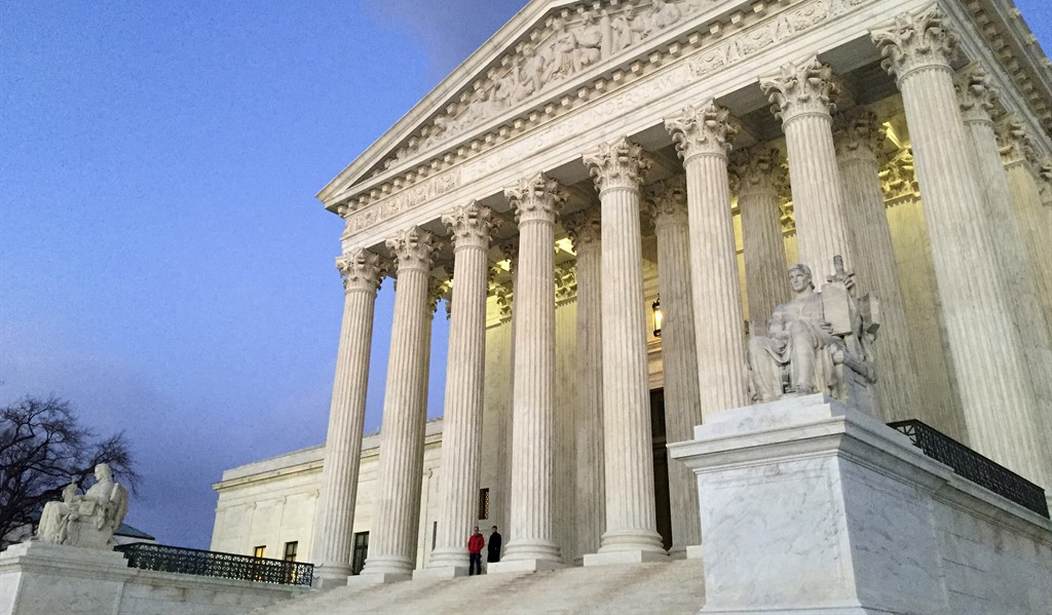Editor's note: This column was co-authored by Andrew Nelms.
All Americans won a victory in the U.S. Supreme Court on Wednesday when the justices ruled in favor of Illinois state employee Mark Janus in his case against the American Federation of State, County and Municipal Employees (AFSCME).
Though this decision will be painted by some as a “win” or a “loss” for this group or that, what the court did was actually quite simple. It upheld a fundamental principle applicable to all: No one should be compelled to fund political speech with which they disagree.
At issue in Janus v. AFSCME was the right of labor unions to collect so-called agency fees – in practice, the same as union dues -- from non-union members, to cover the costs of representation and collective bargaining.
The decision overturns the 1977 Abood v. Detroit Board of Education case that upheld agency fees for a union’s core activities, such as collective bargaining, but also said nonmembers could not be forced to support the union’s direct lobbying and electioneering activities. In practice, this distinction became blurred. For example, unions routinely used agency fees to fund their national conventions, which in many cases were overtly political.
Janus, a child support specialist for the Illinois Department of Healthcare and Family Services, argued that when public unions bargain collectively with the government, they are engaging in inherently political activity because it influences countless matters of public policy: taxes, spending, pension liabilities, debt and others. As a result, the agency fees that unions demand amount to forced political speech and violate the First Amendment.
The court correctly recognized that these policy questions are indeed inseparable from government-union collective bargaining. Its decision affirms that the First Amendment protects government employees from having to pay mandatory fees as a condition of working for the government and serving the public.
Recommended
Moreover, the court went further than many expected by making union membership “opt-in” for those who want it rather than “opt-out” for those who don’t. Previously in many states, workers who did not wish to join the union had their dues deducted anyway and were forced to endure a lengthy, cumbersome process every year to have them refunded. Now, unions will be required to receive written permission from workers before deducting dues from their paychecks.
The ruling affects public employees in 22 states, including Illinois -- Gov. Bruce Rauner was an original plaintiff in the case -- who have been forced to fund this kind of intrinsically political activity against their will in this island amid a sea of right-to-work states.
Now that the decision has been rendered, the question for workers and public-sector unions becomes, what next?
Unions have clearly received the message.
Even before the decision came down, the AFL-CIO launched a national advertising campaign and website extolling the virtues of union membership.
Isn’t that what they should have been doing all along?
Instead of forcing the unwilling to pay, unions would have been much better off recruiting and retaining workers by providing unique services and benefits and selling them to membership.
But for too long, unions belittled those who might have been their allies while forcing them to participate against their will.
They derided as “free-riders” workers who wouldn’t join or wanted out of a union but received union representation anyway – ignoring that many of those workers did not want the union to represent them. Unions prefer to represent nonmembers for the simple reason that representing all workers enhances the union’s bargaining position. In reality, leaving workers’ choice out of the equation made non-union employees forced-riders, not free-riders.
While the question of representation remains, at least Mark Janus and many of the more than 5 million school teachers, firefighters, police officers and other public employees affected by the court’s decision are now free to decide for themselves whether they want to fund a union with which they may disagree.
And that’s the crux of the matter. This case was never about the efficacy of collective bargaining, but about something more fundamental. The decision affirms a principle that supporters of worker freedom have long defended – no Americans should ever have to give up their constitutional rights to keep a public-sector job.
























Join the conversation as a VIP Member